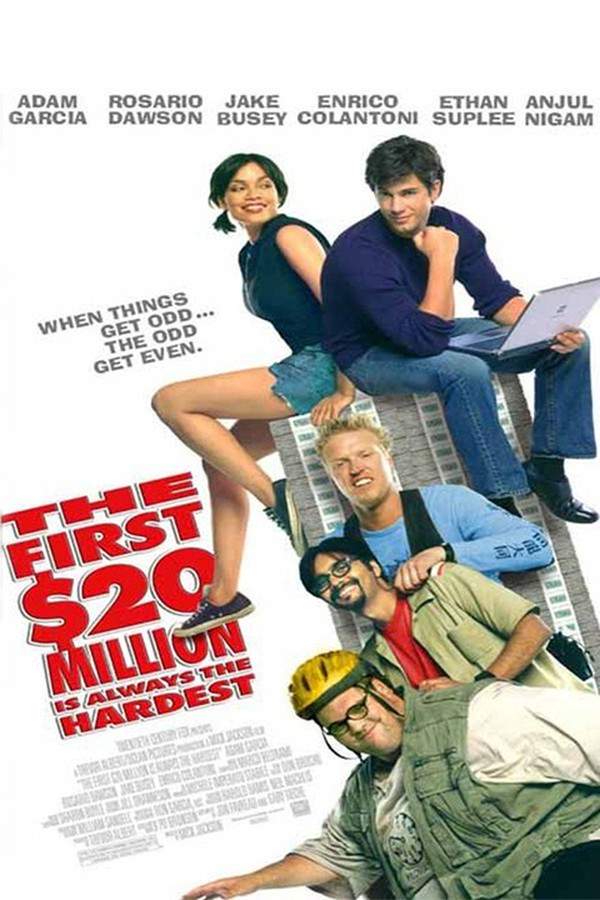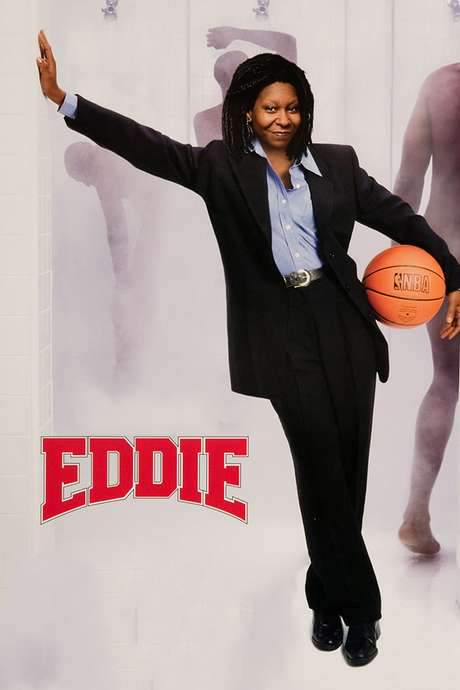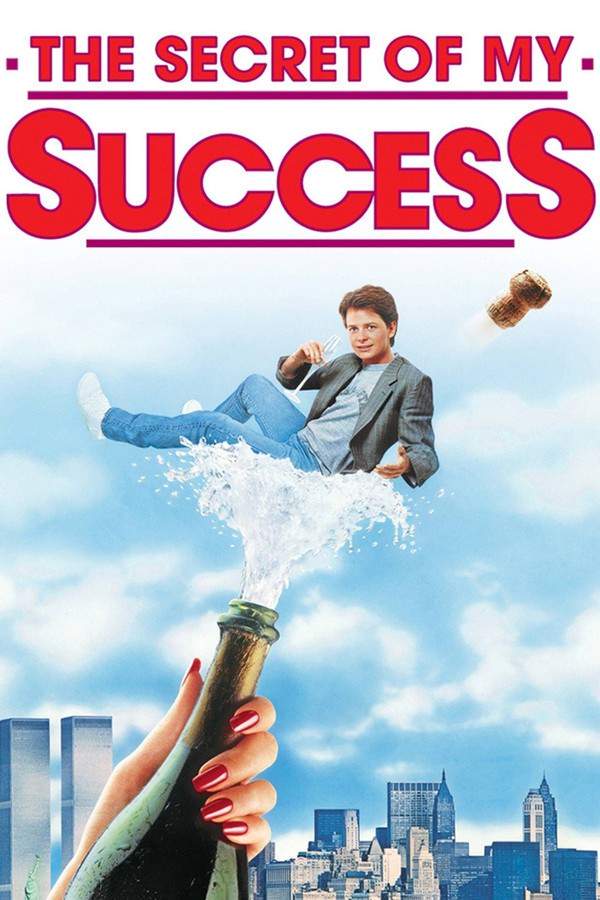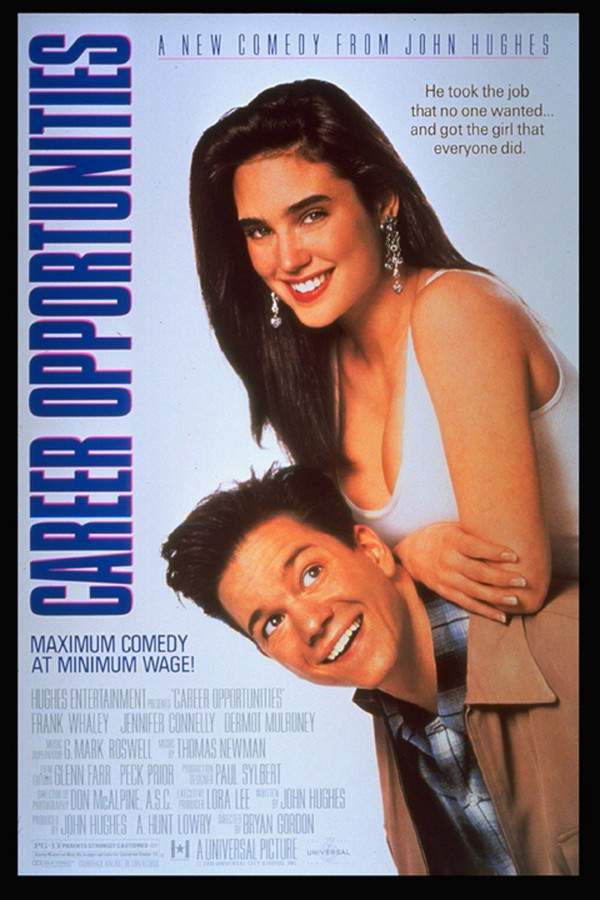
Something Always Happens
Year: 1934
Runtime: 69 mins
Language: English
Director: Michael Powell
Unemployed car salesman Peter, urged by his girlfriend Cynthia, pitches a proposal to the head of a fuel company aimed at making petrol stations more appealing to drivers. After the executive dismisses his idea, Peter accepts an offer from a rival firm, where he implements his vision and quickly rises to great success.
Warning: spoilers below!
Haven’t seen Something Always Happens yet? This summary contains major spoilers. Bookmark the page, watch the movie, and come back for the full breakdown. If you're ready, scroll on and relive the story!
Something Always Happens (1934) – Full Plot Summary & Ending Explained
Read the complete plot breakdown of Something Always Happens (1934), including all key story events, major twists, and the ending explained in detail. Discover what really happened—and what it all means.
Peter Middleton is an unemployed car salesman who lives hand-to-mouth days, but his instincts and a big heart push him toward opportunity. He rescues a hungry street urchin, Billy, from a vendor’s grasp and takes him in, while his landlady, Mrs. Badger, proves unexpectedly kind-hearted and willing to overlook their cash-poor situation. The trio’s makeshift arrangement is fragile, yet there’s a shared sense of possibility in their small, crowded room as Peter looks for a way to turn luck into something sustainable.
A chance encounter sparks a turn of fortune. An acquaintance mentions a client who wants to purchase a 1934 Bentley, and Peter—driven by hunger for a commission—sets out to find one. His bold inspection of the car unsettles the chauffeur, and in the scramble, Peter accidentally bumps into Cynthia Hatch. When he claims the car as his, she invites him to a fine restaurant, all the while letting him believe she, too, is out of work. The staff at the restaurant knows her, but she asks the maitre d’ to pretend not to recognize her, playing a sly game to test Peter. As the evening unfolds, Peter confesses that he has no money, and Cynthia seizes the moment to push him toward meeting her father, the powerful head of several petrol-related companies, Mr. Hatch. Her motives are layered and shrewd, and the dynamic between the two of them begins to tilt.
Mr. Hatch proves a stern barrier to Peter’s schemes, laughing off Peter’s pitch and politely, but decisively, turning him away. He even jokes that Peter should go see a rival company, Blue Point, suggesting a path Peter hadn’t considered. The idea is audacious, but Peter is drawn to the challenge. He follows the hint and travels to Blue Point, where he is hired as their manager. The shift is swift and exhilarating: Peter’s ideas breathe new life into the flagging outfit, and he starts to assemble a new team, including bringing [Cynthia Hatch] back into his orbit—this time as his secretary—though he still doesn’t fully grasp her true connection to Mr. Hatch. What begins as a clever hijack of a losing company becomes a test of loyalty, risk, and trust.
Under Peter’s leadership, Blue Point surges ahead. The once-stalled enterprise begins to outpace Hatch’s own empire, and the mood shifts from cautious optimism to hard-edged competition. Peter starts to map out a bold plan: anticipate a bypass that could reshape the petrol business and secure prime sites along the route before Hatch learns of it. Yet the campaign hits a snag—George Hamlin, Blue Point’s publicist, bungles the messaging so badly that Peter feels betrayed and contemplates replacing him. George’s misstep opens a window for Hatch, who counterpunches by outbidding Peter for the critical sites. The setback lands hard, and Peter is forced to pause and regroup.
The plot thickens as a personal revelation threads through the business drama. Peter sees money flowing from Mr. Hatch to Cynthia and, in a moment of hurt and misinterpretation, believes she has betrayed him. When he confronts her, she denies the accusation and drops a crucial truth: Hatch is her father. The emotional fulcrum of the film shifts from business strategy to the uneasy balance of family loyalty, love, and ambition. Peter learns that the bypass will not be built for another fifteen years, a delay that reshapes every assumption he has about timing, risk, and reward. Hatch, noticing the way his daughter has been involved, offers to sell some of his holdings to Peter, hoping to hedge against the coming reframe of the industry. Peter accepts, aware that the timing could still work to his advantage, even as Hatch realigns his own plan in anticipation of the future.
The tension between trust and manipulation comes to a head as Hatch discovers how the dynamics of the deal were evolving. He isn’t angry so much as impressed by Peter’s nerve and acuity, and the respect between the two men begins to tilt the scales in Peter’s favor. In a pivotal moment, Peter encounters [George Hamlin] again outside Hatch’s office, confirming who the real traitor was all along. The realization cements Peter’s resolve and marks a turning point in the game: the rival’s tactics have failed to derail him, and the ethical complexity of the situation begins to land squarely in his lap. The final reconciliation is not only professional but deeply personal, as Peter and [Cynthia Hatch] gradually recognize the depth of their bond beyond the games and schemes that surrounded them.
In the end, the story blends ambition with affection, showing how a clever, courageous plan can be forged in the crucible of rivalry and disguise. The atmosphere remains crisp and measured, with a touch of romance simmering beneath the surface as the true connections emerge. The characters move through a world where money, influence, and trust collide, and where a determined man and a savvy woman navigate the shifting sands of loyalty, power, and love. The film closes on a note of cautious optimism: the future is uncertain, but the protagonists have learned to read the signals, align their goals, and face whatever comes with a shared resolve.
- Key relationships and threads: the unlikely mentorship between Peter Middleton and the opportunities of the petrol business; the evolving partnership with Cynthia Hatch; the rival pressure from Mr. Hatch and the publicist George Hamlin; the human center of the story in Billy and the steadfast support of Mrs. Badger; and the strategic moves that redefine how a small operation can challenge a big industry. The balance of ambition, romance, and responsibility threads through every decision, making the journey as much about the characters’ growth as about the business landscape they navigate.
Last Updated: October 09, 2025 at 14:14
Explore Movie Threads
Discover curated groups of movies connected by mood, themes, and story style. Browse collections built around emotion, atmosphere, and narrative focus to easily find films that match what you feel like watching right now.
Charming Underdog Business Stories like Something Always Happens
Clever heroes use wit and optimism to climb the business world from the bottom.If you liked the clever corporate climb in Something Always Happens, you'll enjoy these movies. This collection gathers hopeful stories about charismatic underdogs using their wits to succeed in business, featuring steady pacing, light emotional weight, and a feel-good ending.
Narrative Summary
The narrative pattern centers on a protagonist starting from a position of disadvantage—unemployment or a low-level job—who conceives a brilliant idea. They face initial rejection from a powerful establishment but persevere, often finding an unexpected ally. The story unfolds through a series of clever business maneuvers and romantic subplots, culminating in professional and personal victory.
Why These Movies?
Movies in this thread share a core focus on ambition and cleverness as the tools for success. They balance the tension of business rivalry with a hopeful, charming tone, ensuring the stakes feel engaging but never overly heavy. The combination of a steady pace, romantic elements, and a fundamentally optimistic worldview creates a cohesive and uplifting experience.
Romantic Comedies with Charming Deception like Something Always Happens
Stories where hidden identities complicate a romance built on genuine connection.Fans of the romantic tension in Something Always Happens will enjoy this selection. Discover movies where a character's well-intentioned deception about their identity or ambitions creates charming complications in a budding romance, all leading to a heartfelt and happy resolution.
Narrative Summary
The emotional journey begins with a character adopting a false identity or hiding a truth to achieve a goal or win someone's affection. As the romance blossoms authentically, the narrative tension builds around the increasing difficulty of maintaining the lie. The climax involves a revealing confrontation, followed by forgiveness and reconciliation, proving that the real connection was stronger than the deception.
Why These Movies?
These films are grouped by their specific blend of romance and mild intrigue. They share a light emotional weight, ensuring the deception feels like a charming complication rather than a source of deep drama. The tone remains consistently hopeful and witty, with a steady pacing that balances romantic development with the suspense of the secret.
Unlock the Full Story of Something Always Happens
Don't stop at just watching — explore Something Always Happens in full detail. From the complete plot summary and scene-by-scene timeline to character breakdowns, thematic analysis, and a deep dive into the ending — every page helps you truly understand what Something Always Happens is all about. Plus, discover what's next after the movie.
Something Always Happens Timeline
Track the full timeline of Something Always Happens with every major event arranged chronologically. Perfect for decoding non-linear storytelling, flashbacks, or parallel narratives with a clear scene-by-scene breakdown.

Characters, Settings & Themes in Something Always Happens
Discover the characters, locations, and core themes that shape Something Always Happens. Get insights into symbolic elements, setting significance, and deeper narrative meaning — ideal for thematic analysis and movie breakdowns.

Something Always Happens Spoiler-Free Summary
Get a quick, spoiler-free overview of Something Always Happens that covers the main plot points and key details without revealing any major twists or spoilers. Perfect for those who want to know what to expect before diving in.

More About Something Always Happens
Visit What's After the Movie to explore more about Something Always Happens: box office results, cast and crew info, production details, post-credit scenes, and external links — all in one place for movie fans and researchers.

Similar Movies to Something Always Happens
Discover movies like Something Always Happens that share similar genres, themes, and storytelling elements. Whether you’re drawn to the atmosphere, character arcs, or plot structure, these curated recommendations will help you explore more films you’ll love.
Explore More About Movie Something Always Happens
Something Always Happens (1934) Scene-by-Scene Movie Timeline
Something Always Happens (1934) Movie Characters, Themes & Settings
Something Always Happens (1934) Spoiler-Free Summary & Key Flow
Movies Like Something Always Happens – Similar Titles You’ll Enjoy
Whatever Works (2009) Story Summary & Characters
The Secret of My Succe$s (1987) Movie Recap & Themes
Joe Somebody (2001) Plot Summary & Ending Explained
Career Opportunities (1991) Complete Plot Breakdown
Something to Talk About (1995) Movie Recap & Themes
Always Crashing in the Same Car (2007) Detailed Story Recap
Always a Bride (1940) Full Movie Breakdown
The Card (1952) Ending Explained & Film Insights
That Certain Thing (1928) Full Summary & Key Details
Big Business Girl (1931) Plot Summary & Ending Explained
Never Let Go (1960) Full Summary & Key Details
It Should Happen to You (1954) Movie Recap & Themes
Anything Can Happen (1952) Movie Recap & Themes
That Funny Feeling (1965) Full Movie Breakdown
I Sell Anything (1934) Film Overview & Timeline








































